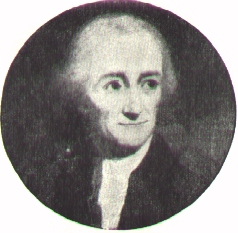
George Read holds a unique distinction among the founding fathers. He is one of two to sign the Petition to the King from the First Continental Congress in 1774, the Declaration of Independence, and the U.S. Constitution. He later represented Delaware in the U.S. Senate and served as Chief Justice of the State of Delaware.
Early Life
George Read was born in Cecil County, Maryland on September 18, 1733. After completing his studies at Rev. Francis Allison’s Academy in Pennsylvania, Read studied law in Philadelphia at the office of John Moland. In 1753, he was admitted to the bar and began to practice law in New Castle, Delaware. In 1763, he married Gertrude Ross Till, the daughter of a local rector. They went on to have four children.
Clinton supported American independence from Britain, both as a politician and a member of the military. He served as brigadier general in the New York militia and continued serving in the Continental Army even after being elected Governor of New York.
Read started his career in public office serving in the Assembly of the Lower Three Counties of Delaware. From 1775 to 1777, he served as a member of the Continental Congress. While Read opposed the Stamp Act and largely supported the patriot movement, he voted against the initial resolution for independence on July 2, 1776 because he believed it was too hasty. When it became clear that a separation from Britain was inevitable, he signed the Declaration of Independence.
In 1776, Read was also appointed to serve as President of the Delaware State Constitutional Convention. He was elected to the first Legislative Council of the Delaware General Assembly and later named Speaker of the Delaware Senate. When Delaware President (Governor) John McKinly was captured by the British, Read was served in his place, guiding the state through the Revolutionary War from October 20, 1777 until March 31, 1778. When a new governor was elected, Read returned to the Legislative Council.
Founding Father
In 1787, Read was nominated to represent Delaware at the Constitutional Convention. He was a vocal proponent of a strong central government, going so far as to call for the abolishment of individual states. Once that plan failed to gain support, he advocated for protections for smaller states like Delaware. Read even threatened to lead the Delaware delegation out of the Convention if the Constitution failed to guarantee the rights of the small states. Once the Constitution was signed, Read championed its ratification in Delaware, and it became the first state to ratify it.
Political Career
Read was elected by the Delaware General Assembly to serve in the U.S. Senate in 1789. He was reelected in 1791, but did not finish his term. Read resigned from Congress in 1793 to serve as Chief Justice of the Delaware Supreme Court and served in that capacity until his death. Read died on September 21, 1798.







